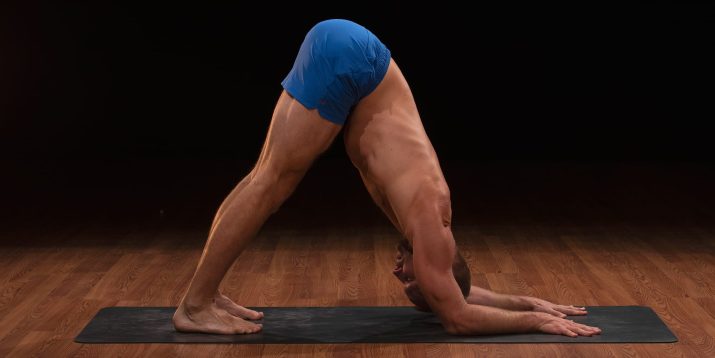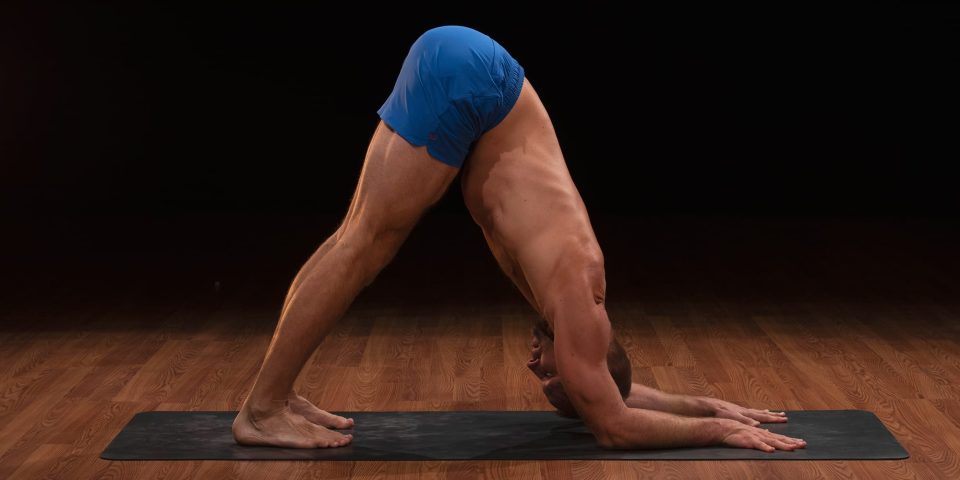
What do you get when you cross a dog with a peacock? In this case, a dolphin! Also known in Sanskrit as ardha pincha mayurasana, dolphin pose is a preparatory yoga posture for a number of inversions.
The pose is essentially downward-facing dog on your forearms. It’s also a setup posture acclimating your arms, shoulders, and upper back for the forearm balance inversion pincha mayurasana, a.k.a. peacock pose. Here’s how it’s done.
Dolphin Pose (Ardha Pincha Mayurasana): Step-by-Step Instructions
- Start on your hands and knees, placing your knees directly below your hips, and your wrists directly below your shoulders.
- On an exhale, lower your forearms to the mat, keeping them parallel and aligning your elbows under your shoulders. On an inhale, tuck your toes, and lift your hips toward the ceiling.
- Keeping your shoulders over your elbows, gently let your head drop, walking your toes slightly forward. Eventually, take your heels farther down toward the mat.
Dolphin Pose Tips and Modifications
- If you have tighter hamstrings, you may have trouble straightening your legs, so maintain a slight bend in your knees. Practice lifting your hips and engaging your thigh muscles.
- Focus on lengthening your spine by lifting your hips while simultaneously reaching your heels toward the floor.
- To deepen the pose, press firmly into the mat to lift your shoulders and hips higher. Some practice lifting one leg at a time to challenge this forearm balance in preparation for the larger inversion.
Benefits of Dolphin Pose
- Builds strength in the arms, shoulders, and back.
- Accustoms your shoulders to lifting away from the floor in preparation for inversions.
- Creates length in the spine and lower body.
- Compared to more complicated inversions like peacock pose, dolphin is a gentler way to incorporate an inversion into your yoga practice, especially as a beginner.
